I LOVE elections!
So since the General Election was called I’ve spent way too much time scrolling through Twitter/X, listening to the latest podcast and gossiping away on WhatsApp.
But with the campaigns in full swing, here are some thoughts on how to follow the election as a curious campaigner.
1 – Get beyond the ‘what’s happened’ analysis – there are some brilliant people getting under the skin of the election campaign to help unpack the tactics and approaches that the parties are using, as there are lots of interesting ideas for campaigners to take.
I’ve especially been enjoying ex-Labour adviser Dr Nick Bowes daily updates on LinkedIn, Benedict Pringle who’s been taking a deep dive at the advertising strategies of the parties, Aggie Chambre on the Politico Westminster Insider podcast and Tom Hamilton’s excellent Substack ‘Dividing Lines’ on the art of political attack.
2 – Follow the election on a different platform – The parties are all investing huge amounts of money and time in digital campaign, so it’s been interesting to dive onto some less familiar social media platforms to see how the parties are approaching different audiences.
What you see on Facebook is very different from what you’ll get on Instagram – and there full of creative and innovative ideas about how to communicate your message. I thought this was good on the approach the parties are taking on TikTok.
3 – Jump into listen to a Focus Group – amongst the pollsters I find that More in Common consistently share some of the most interesting polling insight (and not just on the way your biscuit preference informs your vote).
They’ve got a great series of deep dives looking at the polling on different issues, but they’ve also launched Focus Groups Live – which is bringing the views of focus groups, that are often only accessible to those who fund them to everyone. A great way to listen to what others are thinking. I’d also recommend The Times Radio Focus Groups.
And if you want the ultimate Focus Group then I’d strongly encourage you to pick a party or candidate you want to support and go knock on some doors for them to see what voters are really thinking.
4 – Pick some different constituency races and follow from your laptop – depending on where you live, you might be getting fed up of hearing from the parties who are competing for your vote, or if you live in a safe seat feeling like you’ve been totally overlooked.
But thanks to internet you can do that from the comfort of your sofa – so pick some races that are different to where you live, follow the candidates on social media, see what they’re serving up on the Facebook Ad Library and set up Google News alerts to get a sense of how the parties are approaching winning over voters in very different parts of the country.
The team at Democracy Club also have Election Leaflets. Don’t have time to do that, then I’d recommend Who Targets Me for getting more on what the parties are doing.
5- Watch the news with the sound off – this was one my top takeaways from this Institute of Government discussion on communication strategies at the election – the point being that many people are watching the news on TV while trying to feed the kids, get the washing in, or rush out to the gym, and often with the sound off.
So the pictures and visuals matter as much as the words. A good reminder that as campaigners that it’s not all about the policy narrative – and often about the images that are linked with your campaign.
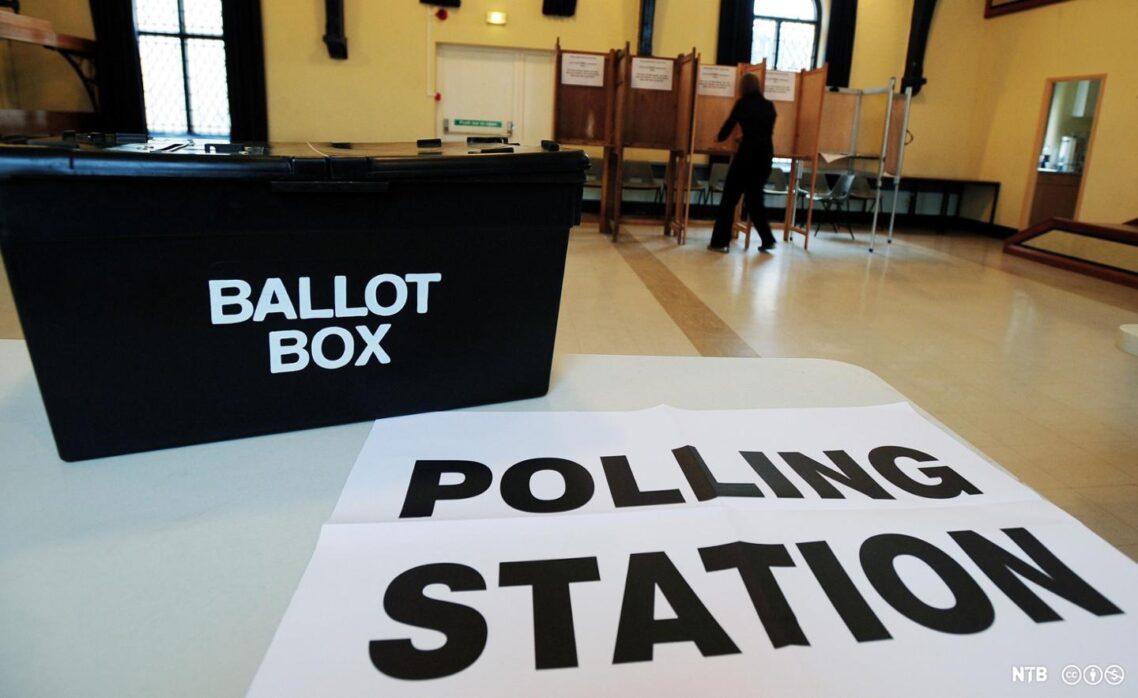
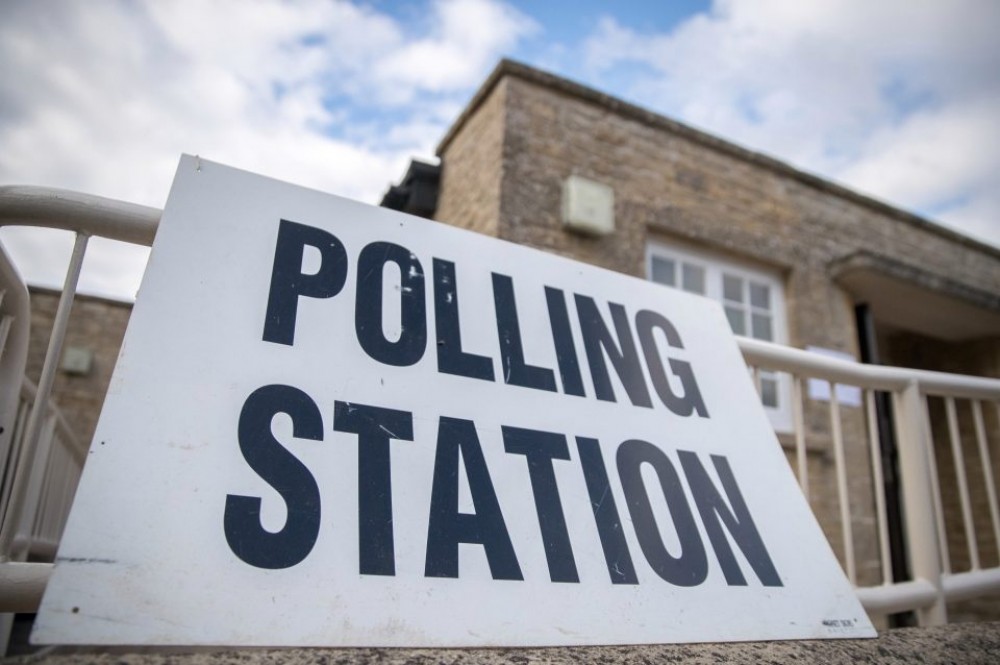

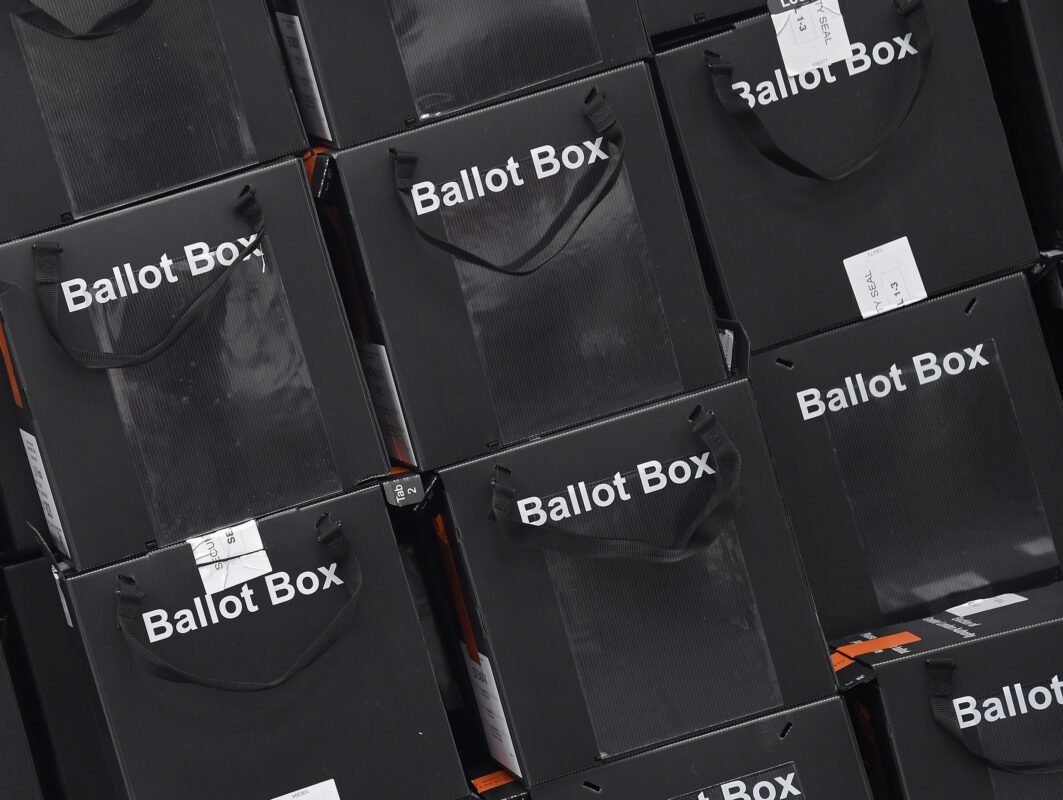
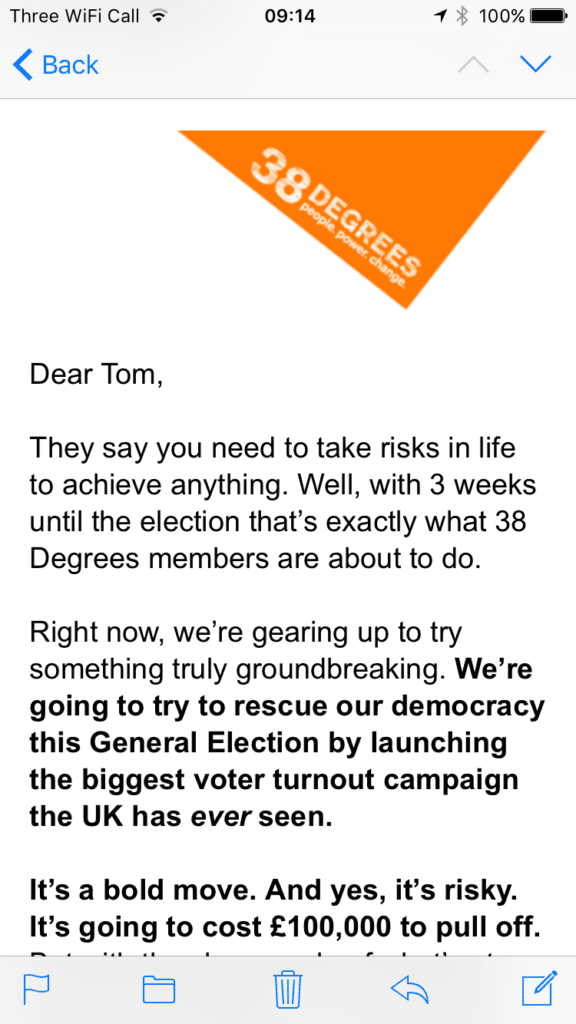
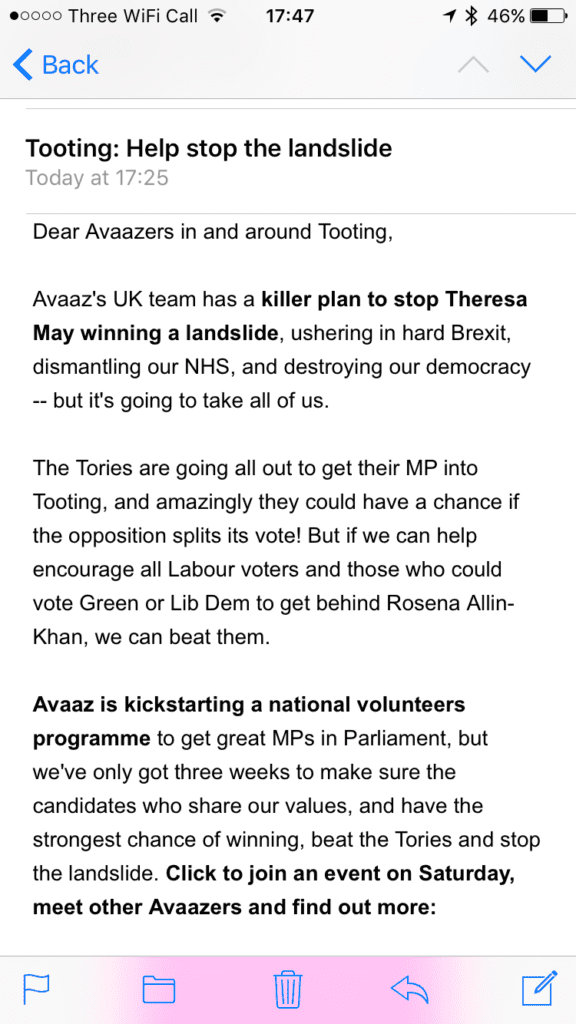
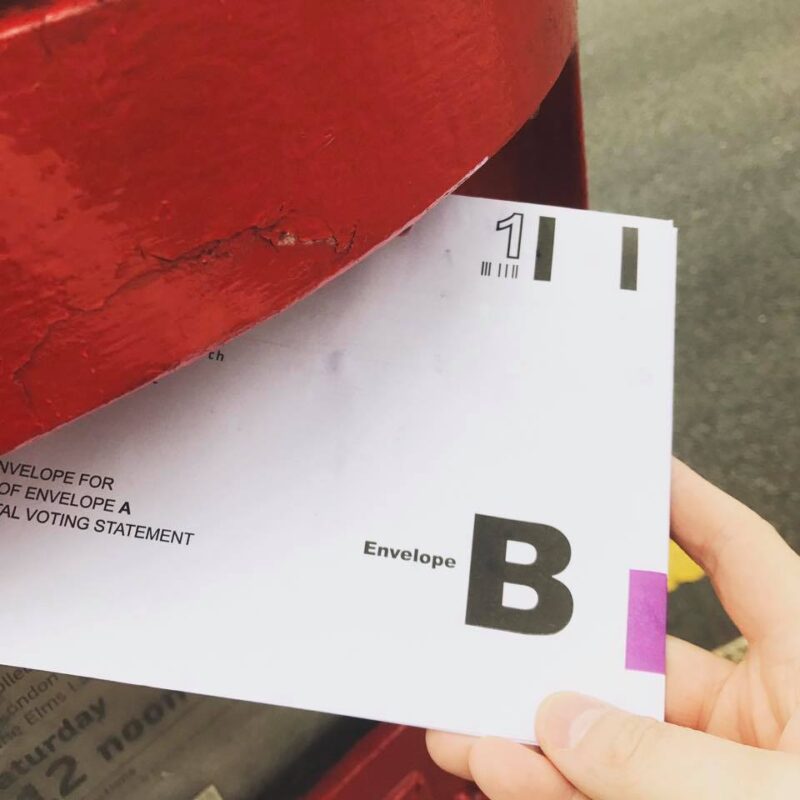
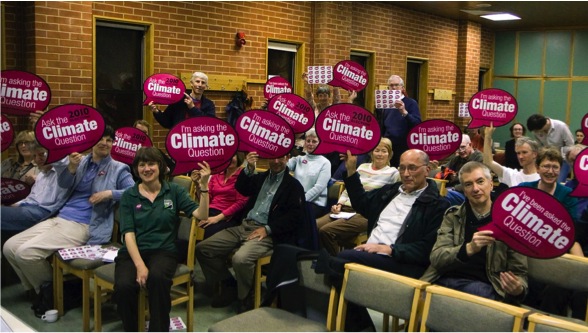
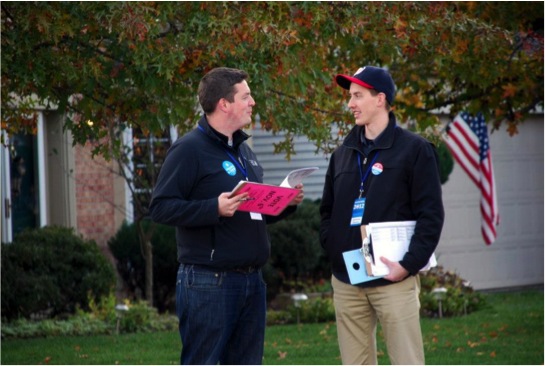
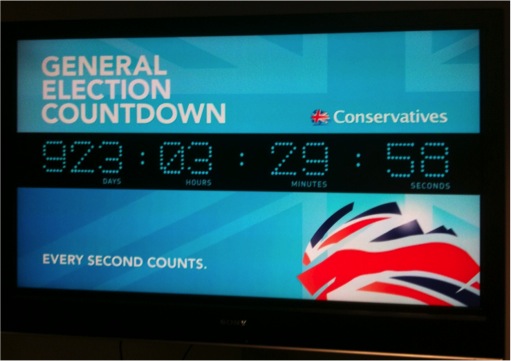
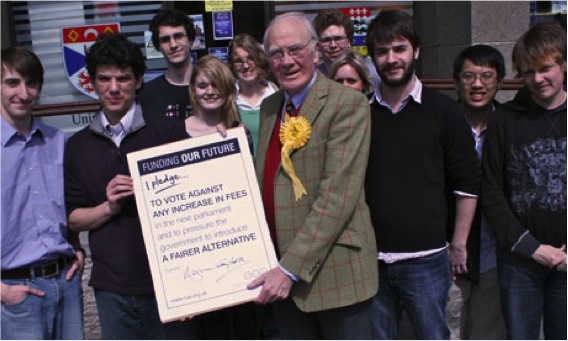
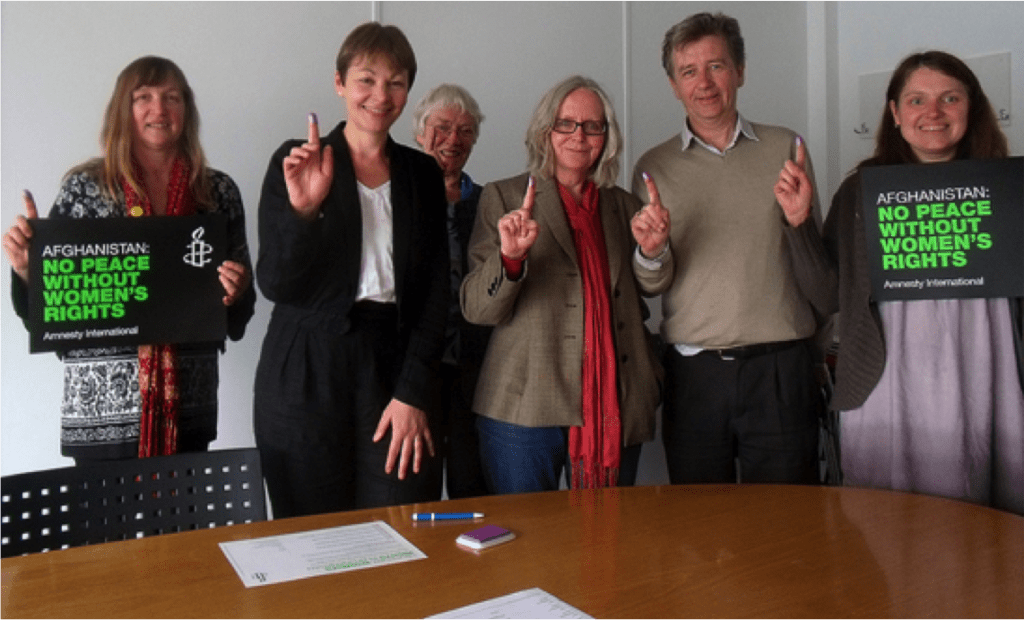
 As a response, the papers campaign is calling on the adoption of
As a response, the papers campaign is calling on the adoption of  Taking supporters on a journey – Go to the website and the campaign offers a menu of three actions you can take to immediately support the campaign –
Taking supporters on a journey – Go to the website and the campaign offers a menu of three actions you can take to immediately support the campaign – 